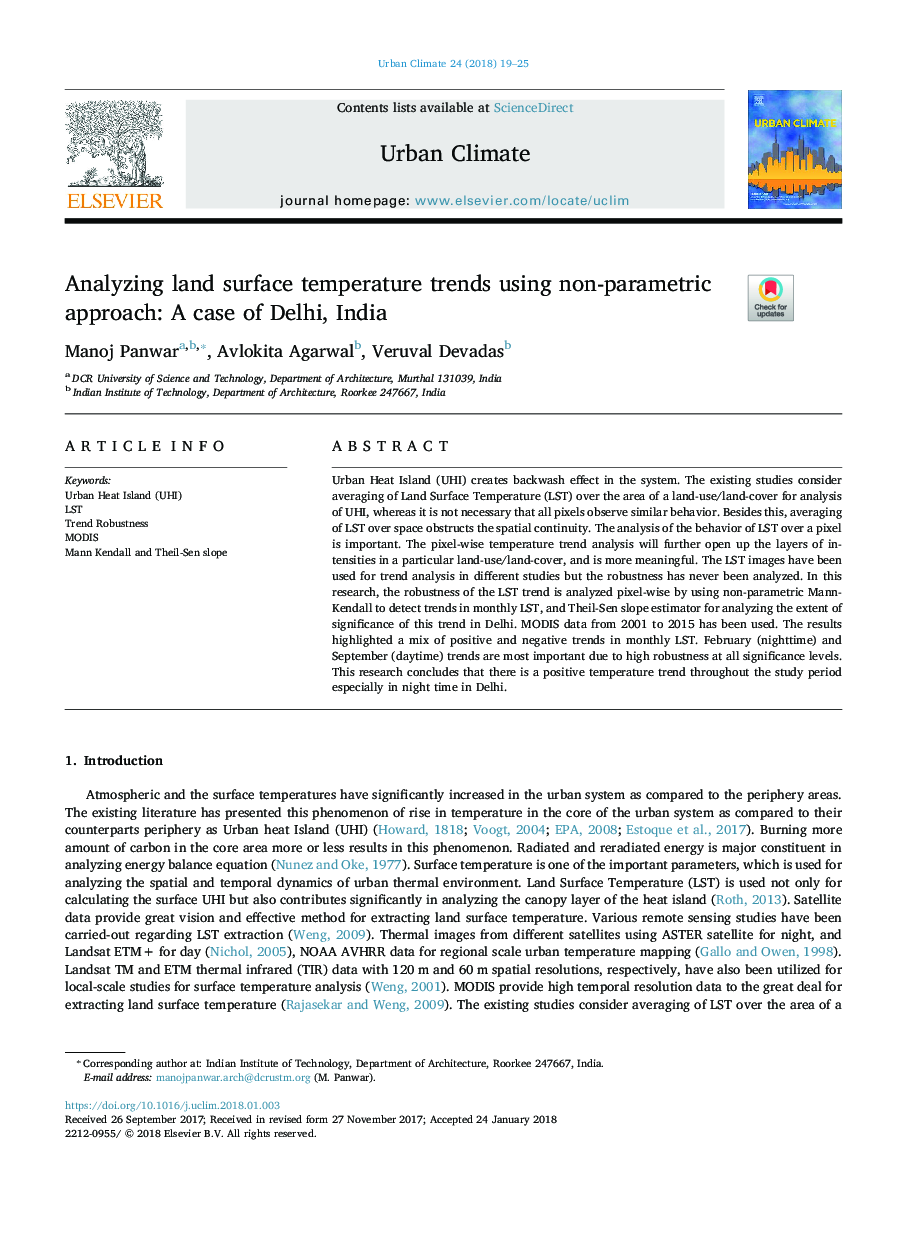| Article ID | Journal | Published Year | Pages | File Type |
|---|---|---|---|---|
| 6576841 | Urban Climate | 2018 | 7 Pages |
Abstract
Urban Heat Island (UHI) creates backwash effect in the system. The existing studies consider averaging of Land Surface Temperature (LST) over the area of a land-use/land-cover for analysis of UHI, whereas it is not necessary that all pixels observe similar behavior. Besides this, averaging of LST over space obstructs the spatial continuity. The analysis of the behavior of LST over a pixel is important. The pixel-wise temperature trend analysis will further open up the layers of intensities in a particular land-use/land-cover, and is more meaningful. The LST images have been used for trend analysis in different studies but the robustness has never been analyzed. In this research, the robustness of the LST trend is analyzed pixel-wise by using non-parametric Mann-Kendall to detect trends in monthly LST, and Theil-Sen slope estimator for analyzing the extent of significance of this trend in Delhi. MODIS data from 2001 to 2015 has been used. The results highlighted a mix of positive and negative trends in monthly LST. February (nighttime) and September (daytime) trends are most important due to high robustness at all significance levels. This research concludes that there is a positive temperature trend throughout the study period especially in night time in Delhi.
Keywords
Related Topics
Physical Sciences and Engineering
Earth and Planetary Sciences
Earth and Planetary Sciences (General)
Authors
Manoj Panwar, Avlokita Agarwal, Veruval Devadas,
